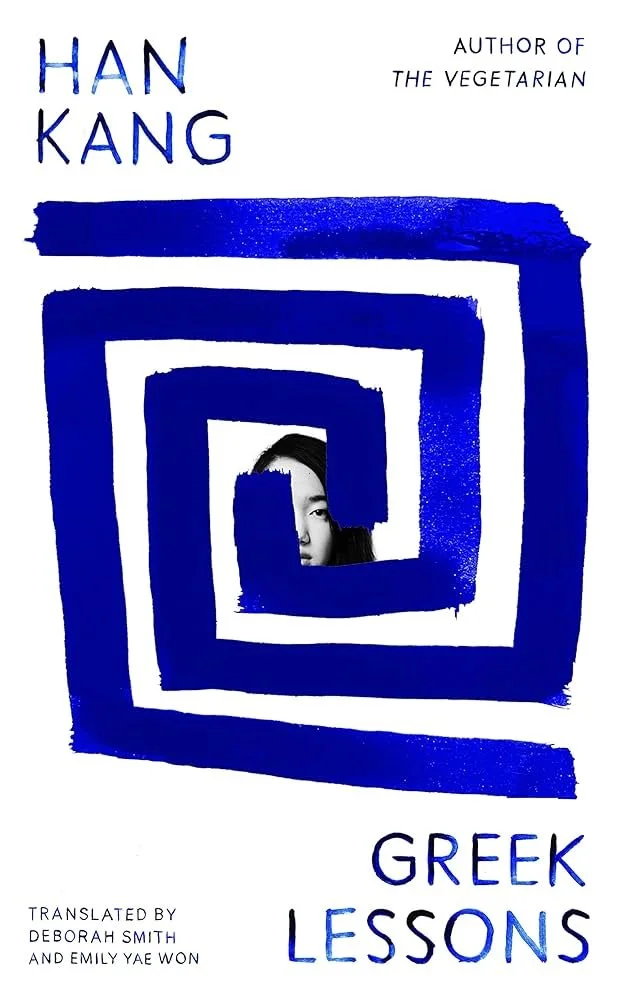Greek Lessons by Han Kang, translated by Deborah Smith and E. Yaewon (Penguin) ~Ernie Hoyt
Han Kang is a South Korean writer who debuted with her novel The Vegetarian in 2007. She is also the winner of the 2024 Nobel Prize for Literature. Greek Lessons is her seventh novel which was originally published in the Korean language by Munhakdongne in 2011. The English edition was translated by Deborah Smith and E. Yaewon was published in 2023.
The book centers on two main characters. A university lecturer who is nearly blind and a woman who has lost the ability of speech. The lecturer teaches Ancient Greek and the woman is one of the few students enrolled in his class.
All the chapters of the book are written in the first person. Sometimes it’s the lecturer and sometimes it is the woman who cannot speak. The author doesn’t give a hint to whose point of view is spoken and the reader must infer from the context to determine if it is the lecturer or the woman who cannot speak.
We learn that the woman was also a teacher until the spring of the previous year. One day she was at the front of the class writing something on the blackboard but then froze for about a minute or so. One of her students asked if she was okay. She tried to smile back at the student but “her eyelids spasmed for a while”. “She muttered to herself from somewhere deeper than her tongue and throat: It’s come back!”.
When she was a young girl, her mother always told her how bright she was. She was able to learn Hangul (Korean script) when she was only four years old. When she started primary school, she used to write new words at the back of her diary “with neither purpose nor context, merely a list of words that had made a deep impression on her”.
However, “the words she’d jotted down in the back of her diary wriggled about of their own volition to form unfamiliar sentences”. The words would shoot at her in the middle of the night, waking her up a number of times. For her, “the most agonizing thing was how horrifyingly distinct the words sounded when she opened her mouth and pushed them out one by one”.
It was when she was sixteen when “the language that had pricked and confined her…abruptly disappeared”. Now here she was - a middle-aged woman who once again could not find the words to speak.
As for the lecturer, he lived in a town called Suruyi in the southern part of South Korea until he was fifteen. One Sunday, his mother informed them that the family would be moving to Germany in two months. He spent the next seventeen years of his life in Germany. It was in Germany when the lecturer learned of his condition. He knew he would be losing his vision sometime in the near future.
The lecturer decided to move back to his home country before losing his sight permanently. He was able to get a job teaching Ancient Greek at a local college. He did not admit the severity of his condition to his employers.
The core of the story is how these two unlikely individuals begin to find solace in each other. One who could not see and one who could not speak. Would their relationship flourish or is it destined to be a disaster?
Kang’s prose will grip the reader. It is not only a story of loneliness and solitude, but it’s also about love, compassion, and intimacy. It is sure to stir your heart.
